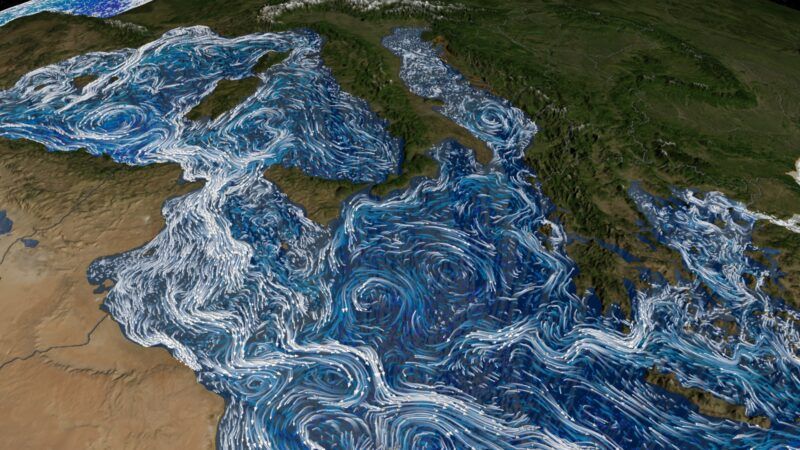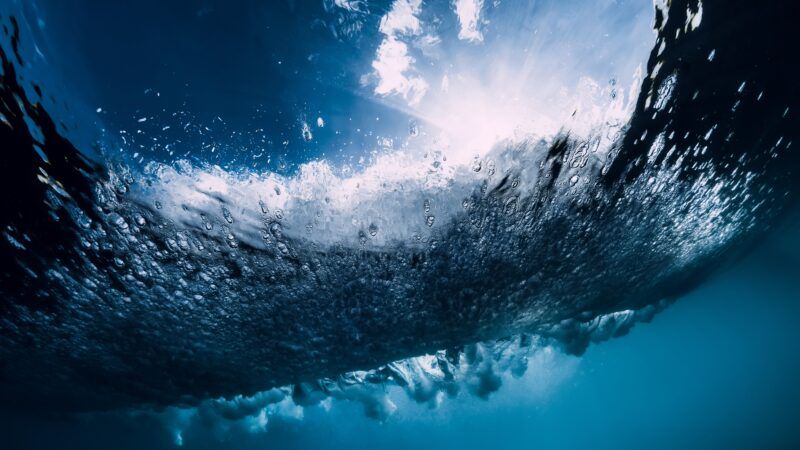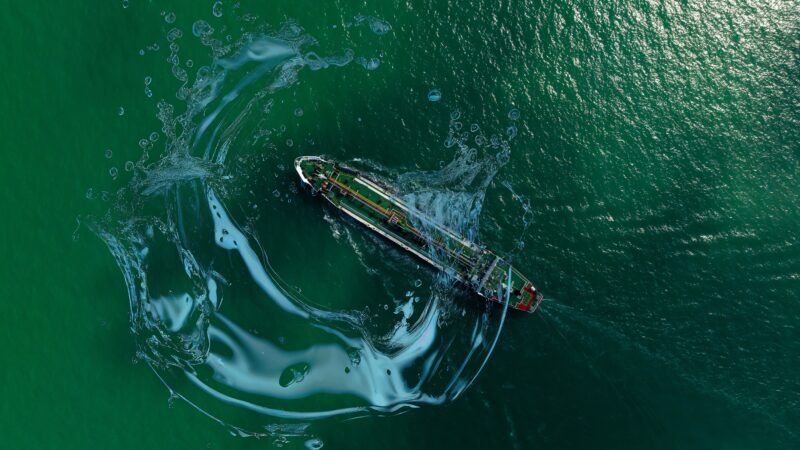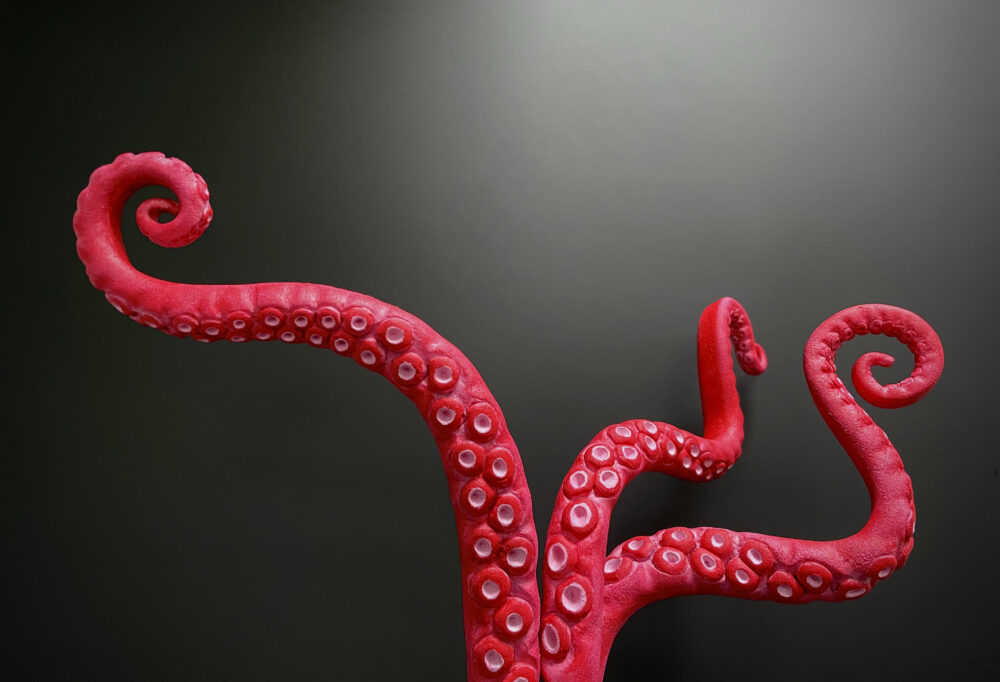 There are three criteria for measuring the sustainability of fisheries: the state of fish stocks, their environmental impact and the management of the fisheries themselves. (GettyImages)
There are three criteria for measuring the sustainability of fisheries: the state of fish stocks, their environmental impact and the management of the fisheries themselves. (GettyImages)
What the (sustainable) octopus can teach us: the fishing sector rides the wave of the blue economy
The blue economy offers a way to harness the wealth of the oceans without compromising the environment or economic growth to sectors involved in the catching, distribution and marketing of fish and seafood. It is a path of innovation and sustainability that is increasingly profitable for businesses and fisheries.
 There are three criteria for measuring the sustainability of fisheries: the state of fish stocks, their environmental impact and the management of the fisheries themselves. (GettyImages)
There are three criteria for measuring the sustainability of fisheries: the state of fish stocks, their environmental impact and the management of the fisheries themselves. (GettyImages)
When we talk about the sustainability of the seafood trade, the octopus is always at the center of the conversation. Specifically, the debate arose as a result of projects to breed octopus in captivity for commercialisation and consumption, just when a documentary about a very special octopus became a trend.
It seems that the sea, as well as being a great source of wealth and food, is also a source of debate. That debate may be inexhaustible, but the ocean's resources are not. In recent decades, overexploitation of the sea has put the balance and health of its ecosystems at risk.
"From the point of view of biodiversity, the situation is not good," says Laura Rodríguez, director of the Marine Steward Council (MSC) in Spain and Portugal. "The FAO indicates that one third of the fish stocks assessed are overexploited. This is a trend that has been increasing since the 1970s, when the percentage was 10%.”
The first step to turn this situation around is to adopt a change of mentality regarding the importance of sustainability and care for the ecosystems. Something that has already become noticeable in the business fabric of many countries, including Spain.
In fact, here is a great little example, following the example of octopods, the sale of octopus certified with the MSC NGO seal by Asturian artisanal fisheries fetched a price between 15 and 24.5 % higher than that of non-certified ones.
One in ten people around the world depend on fishing
Over the last few decades, global demand for fish and seafood has increased the pressure on the oceans from human activities. This has affected the survival of species, damaged many ecosystems and put the livelihoods of millions of people at risk.
Today, an estimated one in ten people around the world depend on fishing for their livelihoods. The percentage increases in the southern hemisphere, where a large number of families base their diets and sources of income on the products they extract from the waters.
As the NGO, which works to establish a global standard for sustainable fishing, points out, this is in addition to other problems that can alter the state of ecosystems and generate profound changes in the state of marine populations. For example, climate change.
"We have seen a very big change. Over the last five years, both the fishing and the business sector have assumed that sustainability must be a fundamental part of their strategies, that they must develop sustainability policies within their companies and that the survival of their businesses will depend on the health of the oceans," says Rodríguez.
Keeping the oceans healthy and avoiding the overexploitation of species is one of the main challenges for feeding the planet's growing population in the coming decades. This means considering changes in the way fish and seafood are harvested, traded and consumed.
FAO indicates that one third of assessed fish stocks are overexploited, a trend that has been increasing since the 1970s, when the rate was 10%.
Seafood and blue economy: fishing companies, marketers, ports, fish auctions... and consumers
The World Bank defines the blue economy as one that makes a sustainable use of ocean resources to support both economic growth and improved livelihoods and ecosystem health. For the seafood sector, it is an opportunity to provide food without putting the planet's resources at risk.
According to the MSC director, the change of mindset for these sectors to become more sustainable is already a reality. Policies with ambitious, measurable and transparent objectives are now necessary.
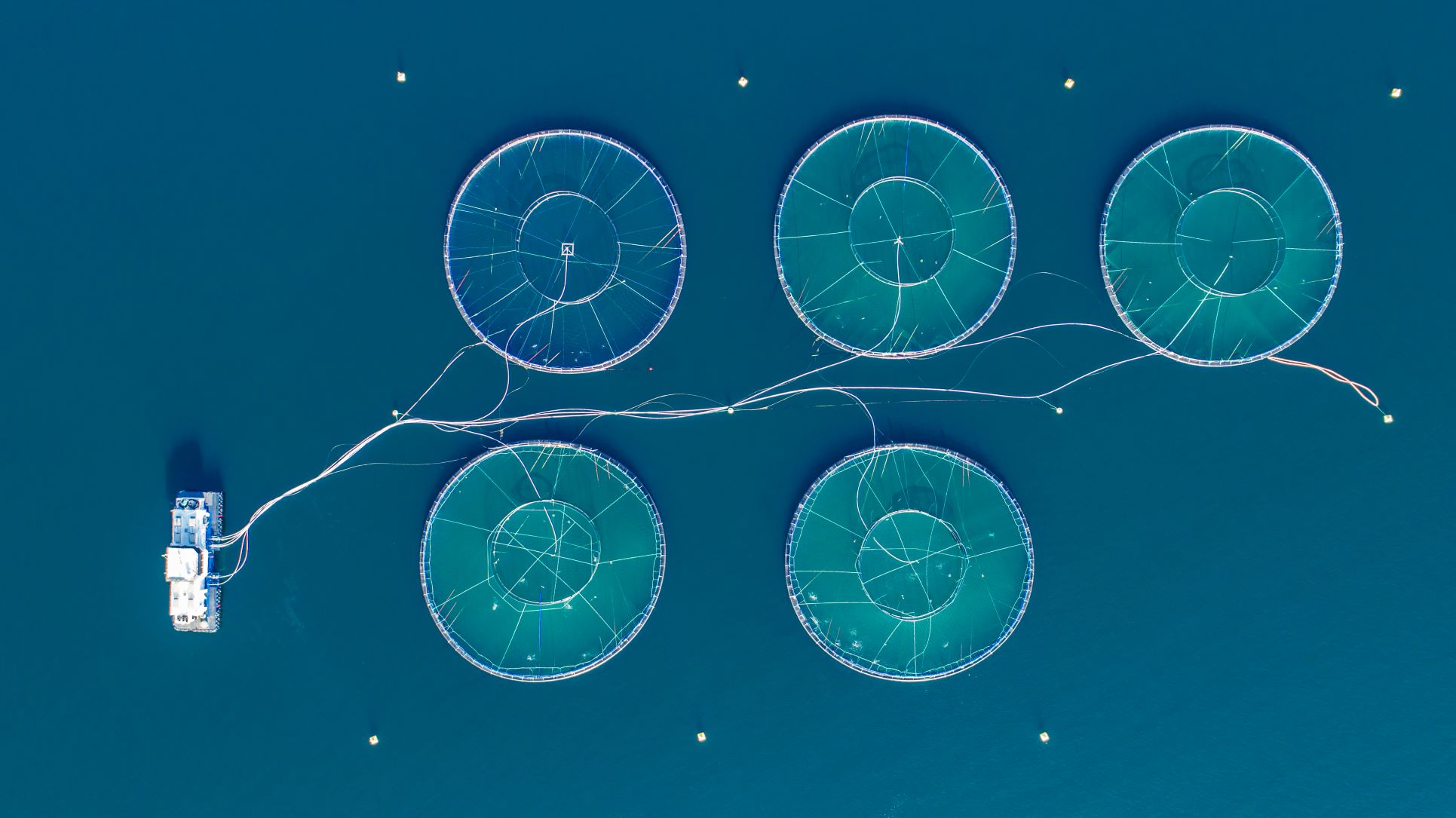
In addition, the different agents that form part of the long chain of fishing and commerce of seafood products play a fundamental role in contributing to this improvement. "The first step in transforming these sectors must be taken by fishing companies, by assessing the impacts of their activity and reducing them," Rodriguez explains.
The second step corresponds to trading companies. "For them, one of the big challenges is to have a good understanding of the supply chain. Where the fish and shellfish come from, under what conditions they have been caught, and so on. In other words, to achieve greater transparency in traceability," continues the director of this NGO.
About this point, ports and fish auctions have the capacity to tip the balance towards sustainability. "They are the gateway to land-based seafood and therefore key players in the fight against illegal fishing. By verifying information at the first sale they can ensure that legislation is complied with and that illegally harvested products do not enter the commercial chain," says Rodriguez.
The last link in the chain is the consumer, who also has a responsible role in choosing the products he or she buys. One option for ensuring that the fish and seafood consumed is linked to the principles of the blue economy is to pay attention to the seals that endorse it.
Trend-setting projects and sustainable fishing companies
To measure the sustainability of fisheries, the MSC uses three criteria: the state of fish stocks, their environmental impact and the management of the fisheries themselves. In the 12 years that the NGO has been working in Spain, more than 300 companies in the cod, white tuna, anchovy and tuna fleets, among others, have obtained certification.
"We have seen a positive, but moderate, evolution. In other countries with similar fish and seafood consumption patterns to Spain, the values are higher. We need blue seal fish to be more relevant, and for consumers to be able to find them in more establishments," Rodríguez points out.
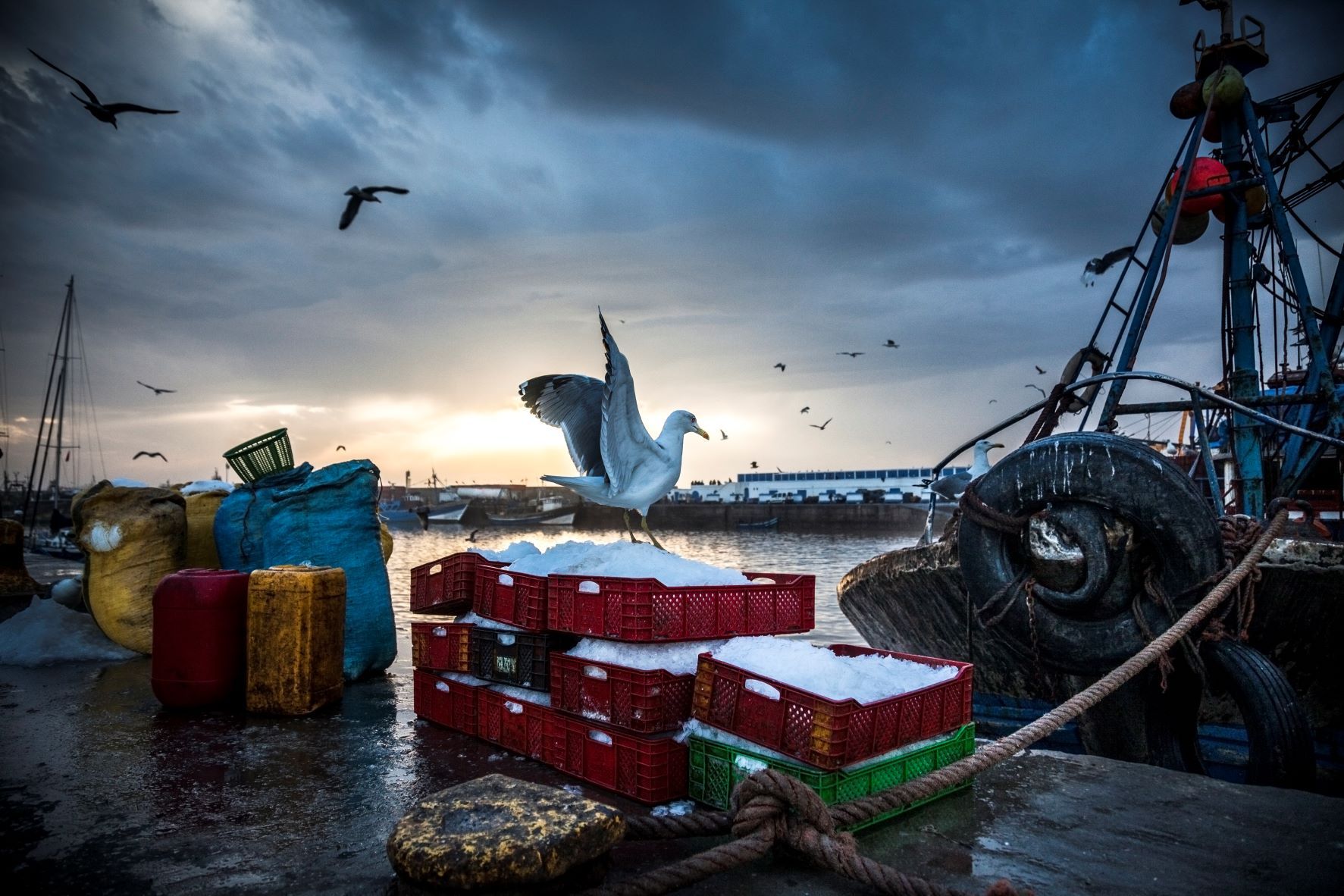
Analysis of French and Spanish fisheries
With this objective and together with WWF, the NGO has created the Medfish Project to carry out an analysis of French and Spanish Mediterranean fisheries and, with the data obtained, establish an action plan to undertake sustainability improvements. In addition, Medfish works with actors in the supply chain to increase demand for sustainable fish products and boost their commercialisation.
In the business sector, one company that stands out for its sustainability is Frime. A tuna trading company that uses sustainable fishing techniques and relies on development and R&D to optimise its operations.
In terms of sustainability, the company relies on five commitments: using its energy resources efficiently, boosting the circular economy, reducing its carbon dioxide (CO2) emissions, limiting the waste of raw materials and other resources and minimising its impact on the sea.
In terms of innovation, the company makes use of technologies and tools such as X-rays and artificial vision to ensure, among other aspects, the reliability of its product labelling. This is essential to guarantee transparency and the correct traceability of sustainably caught fish.
The benefits of the blue economy in fisheries
Sustainable fisheries and aquaculture have many advantages, including protecting marine wildlife, contributing to food security and reducing pollution. But there are also many other socio-economic benefits.
As we have already mentioned, according to the study 'Evidence of price premium for MSC-certified products at fishers' level: The case of the artisanal fleet of common octopus from Asturias (Spain)', carried out by the University of Cantabria, the sale of octopus certified with the MSC seal by Asturian artisanal fisheries fetched a considerably higher price than that of non-certified products, up to almost a 25% more.
"As a result of this study, we found that fisheries with certified products obtained not only a higher market price, but also other benefits that generate added value and can empower the primary sector," says Rodríguez. "For example, they gained more bargaining power, strengthened the organisational capacity of the fishermen's associations and improved their communication with the administration and scientific institutions.”
Stock market rises if the fishing net is sustainable
On the other hand, the study 'How Do Investors Value Firms' Decisions on Obtaining an Eco-label? Evidence from the Fishing Industry', carried out by the same university, shows how obtaining an independent certification improves the listing of companies on the stock exchange.
"This is something we also see informally: as a result of certification, these companies gain access to better markets and better prices," says the MSC director, "and there is another very important benefit: by making improvements in sustainability, the companies' own staff begin to understand its importance and to make changes that go beyond those governed by certifications.”



